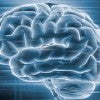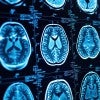
Digital Health Institute summit showcases Rice-Houston Methodist partnership in AI-driven medicine
The Digital Health Institute, a joint initiative of Rice University and Houston Methodist, held its inaugural summit Oct. 8 at Rice.

Digital Health Institute summit showcases Rice-Houston Methodist partnership in AI-driven medicine
The Digital Health Institute, a joint initiative of Rice University and Houston Methodist, held its inaugural summit Oct. 8 at Rice.

Exploring links between AI and the brain as Texas weighs Proposition 14
LLMs and the Brain, a symposium featuring researchers from Rice, Baylor College of Medicine, the University of Texas, the Georgia Institute of Technology, the University of Montreal and other institutions explored the intersection between neuroscience and AI. The conversation around brain research extends beyond the university and is unfolding at the state level. On Nov. 4, Texas voters will decide on Proposition 14, which would fund the Dementia Prevention and Research Institute of Texas (DPRIT) with $3 billion over 10 years, creating the largest state-funded dementia research program in the country.

New AI tool makes medical imaging process 90% more efficient
Rice researchers developed an AI tool that makes a medical imaging process 90% more efficient.

Rice researchers have successfully measured the temperature of quark-gluon plasma at various stages of its evolution.

A team of researchers at Rice has developed a new catalyst that dramatically reduces the amount of iridium needed in proton exchange membrane water electrolyzers, a key technology for generating green hydrogen from water.

Rice's Ken Kennedy Institute hosted the fourth annual AI in Health Conference, convening over 550 attendees across the four-day event for plenary speaker sessions, networking and workshops that explored key areas for artificial intelligence-driven advancement across health and public health domains.

Materials scientist Hautier named fellow of American Physical Society
Rice materials scientist Geoffroy Hautier has been elected a fellow of the American Physical Society for his work in high-throughput computational materials design and discovery.

New UTHealth Houston school highlighted at joint Rice-UTHealth workshop on AI and behavioral health
The Future of AI and Behavioral Health Workshop, a joint effort of Rice and UTHealth Houston, explored the intersection of artificial intelligence and behavioral health and served to spotlight the launch of UTHealth Houston’s new School of Behavioral Health Sciences.

Scientists uncover room-temperature route to improved light-harvesting and emission devices
A team of researchers from Rice and collaborators have found a way to make two different phonons in thin films of lead halide perovskite interact with light so strongly that they merge into entirely new hybrid states of matter.

Rice faculty and leadership highlighted cutting-edge research and national collaborations during the Research Frontiers Showcase in Washington, D.C., held one day ahead of the Owls’ Sept. 27 football game at Navy.

New Digital Health Institute Summit spotlights health tech innovation Oct. 8
The Rice-Houston Methodist Digital Health Institute will host an inaugural summit Oct. 8 at Rice, launching what will become an annual gathering at the forefront of digital health and innovation.

Rice undergraduate builds tool to help NASA scientists monitor microbes in space
Rice junior Ankhi Banerjee spent 10 weeks over the summer building a data-analysis pipeline to help NASA Johnson Space Center scientists track microbes aboard the International Space Station.

AI for ecology and conservation: New tools track ecosystem health
Rice's César A. Uribe is developing computational tools to help scientists better understand ecosystems with recent studies using AI to glean new insights from different kinds of ecological data — from African mammal food webs to tropical forest soundscapes.

Bridging gap between artificial intelligence, real-world health outcomes
The Ken Kennedy Institute at Rice will host the fourth annual AI in Health Conference this month, aiming to forge interdisciplinary, cross-institutional collaborations and showcase innovative AI advancements for health research, medicine and data-driven technology.

Recent research from Rice and Houston Methodist shows how data-driven methods can sharpen doctors’ decisions for patients with aortic regurgitation, a common heart condition where the heart valve doesn’t close properly and blood leaks backward into the heart.